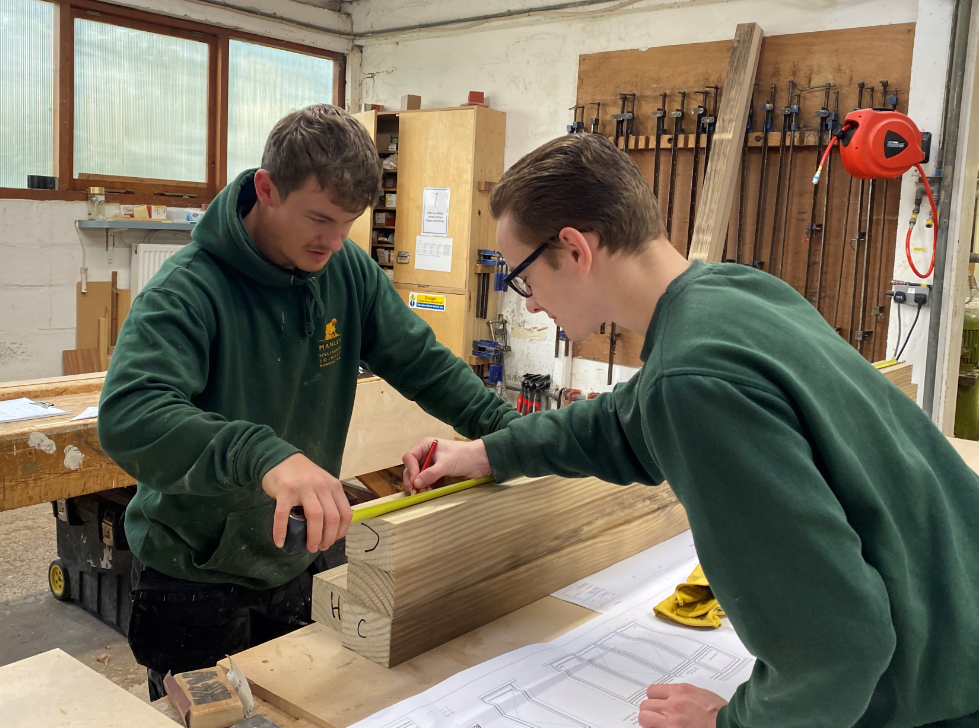
There are a wide range of rewarding and exciting career options in the woodworking and joinery manufacturing sector. Apprenticeships are a great way to kick off your career but there are many other options to consider when deciding what is best for you, including completing a full-time course at college, completing a T-level qualification, attending university, or considering a soon to be launched Traineeship.
There are many job roles to consider when thinking about a career in this rewarding and exciting sector. Here is a description of the most common roles
Carpenter
Carpenters are mainly involved in construction site works. They install and assemble construction products including doors, windows, roof structures, timber fittings, staircases, etc. So essentially, carpenters do all forms of woodwork which is involved in constructing, maintaining, and improving a range of buildings.
Architectural Joiner
Architectural joiners are mainly workshop based. They produce, assemble, and finish a wide range of construction products including doors windows, staircases, and bespoke furniture etc. So essentially, architectural joiners make the products which are ten installed on site by carpenters.
Wood Machinist
Wood machinists process timber and turn them into finished wood and components for industrial and residential uses. They cut and prepare the timber for making a range of timber related products. So essentially, the wood machinist prepares the timber for handover to the architectural joiner and carpenter.
Wood Product Manufacturing Operative
Wood product manufacturing operatives work in a factory-based manufacturing type role, producing high volume, repetitive, engineered products from timber, such as roofing components, windows, doors, door-sets, staircases, and other timber construction items including roofing components and beams. Like architectural joiners, they make the products which are ten installed on site by carpenters.
Apprenticeships are a great way to enter the woodworking and joinery manufacturing sector, but there are a range of other good alternatives including:
For more information on any of the above routes CLICK HERE
With so many ways to enter a career, it can sometimes prove difficult to know where to start. Go Construct provides resources for individuals considering a career in the construction industry and associated sectors.
Talentview Construction is the dedicated online platform aimed at employers looking for new talent and individuals looking for opportunities to embark on a rewarding and exciting career in the construction and associated industries. It is a great place to search for and find your perfect role in the construction industry and associated sectors.
BWF members and their apprentices share their experiences of apprenticeships.
Find out about taking your first steps on your apprenticeship journey.